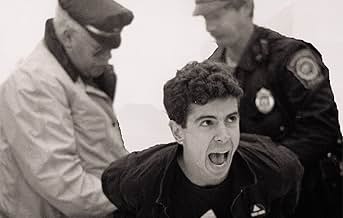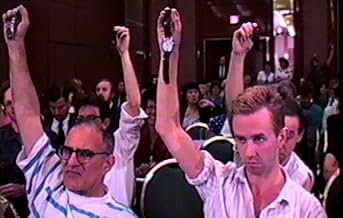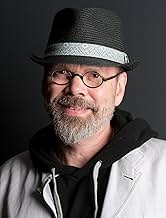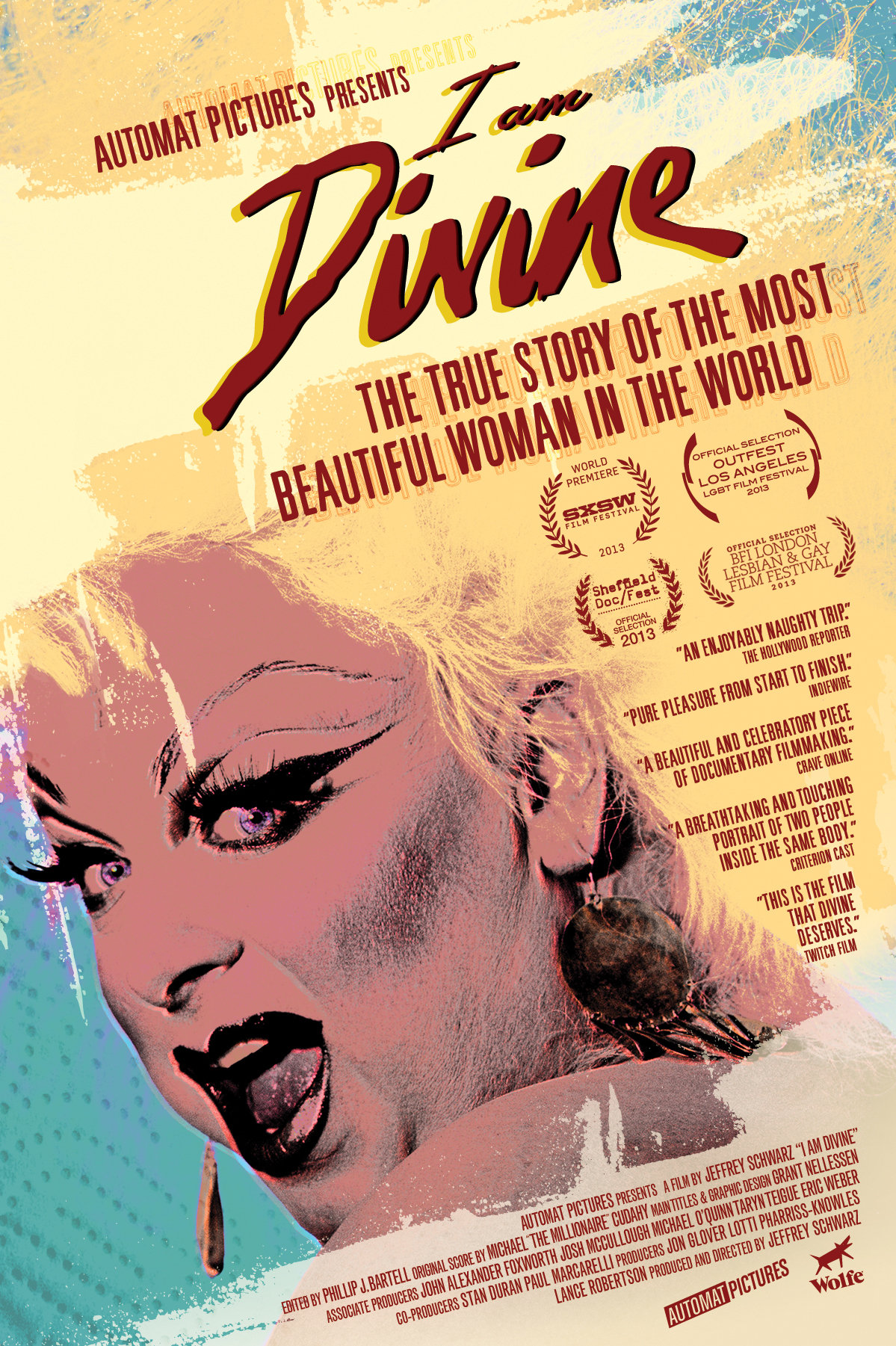IMDb रेटिंग
7.6/10
4.5 हज़ार
आपकी रेटिंग
अपनी भाषा में प्लॉट जोड़ेंThe story of two coalitions -- ACT UP and TAG (Treatment Action Group) -- whose activism and innovation turned AIDS from a death sentence into a manageable condition.The story of two coalitions -- ACT UP and TAG (Treatment Action Group) -- whose activism and innovation turned AIDS from a death sentence into a manageable condition.The story of two coalitions -- ACT UP and TAG (Treatment Action Group) -- whose activism and innovation turned AIDS from a death sentence into a manageable condition.
- 1 ऑस्कर के लिए नामांकित
- 13 जीत और कुल 21 नामांकन
Iris Long
- Self - Retired Chemist
- (आर्काइव फ़ूटेज)
- (as Iris Long PHD)
Bob Rafsky
- Self - PR Executive
- (आर्काइव फ़ूटेज)
Ed Koch
- Self - Mayor of New York
- (आर्काइव फ़ूटेज)
Barbara Starrett
- Self - AIDS Physician
- (as Dr. Barbara Starrett)
Franke-Ruta Garance
- Self - Teenager
- (as Garance Franke-Ruta)
Mathilde Krim
- Self - AMFAR, The Foundation for AIDS Research
- (as Mathilde Krim PHD)
Jesse Helms
- Self - R - North Carolina
- (आर्काइव फ़ूटेज)
फ़ीचर्ड समीक्षाएं
"How to Survive a Plague" is a gripping documentary that tracks down the chronological history of HIV and AIDS, from its onset in the early 80's to today. During the 80's, it was actually a plague killing millions of people. The documentary focuses on two advocacy groups ACT and TAG, and their tireless work for decades to persuade U.S. governments to allocate more funds for AIDS research and medicine. Their efforts helped turn AIDS from a fatal disease to a manageable condition. This documentary might be hard to survive through; not because of any inadequacy but because of the frightful scenes showing how many young people with bright futures died from AIDS. Director David France proficiently exhibits the work of ACT and later TAG from its very beginnings, and then finalizes it showing several ACT & TAG members today in how they were able to survive AIDS. These brave & honorable men practically saved their own lives with their advocacy efforts, and that is one ACT that if hard to follow. OK, now TAG, you are it. Because it is your turn to get educated with France's love letter to ACT & TAG with a "How to Survive a Plague" viewing. **** Good
"How to Survive a Plague" takes real footage from the 1980s and 90s fight for health among the homosexual community and allows us to accurately re-live the tragedy of the rise of AIDS worldwide and the political incompetence to do anything about it. Part of the excellence of this documentary is allowing the actual events to speak for themselves. These activists had the foresight to record their conversations and protests, and these filmmakers had to foresight to know how to edit it to leave the power in the hands of those fighting.
AIDS Coalition to Unleash Power (ACT UP) was formed in New York in 1987. Establishing Larry Kramer as its spokesperson was one of the many smart moves this advocacy group made. He's well-spoken and he knows his facts. Approximately half-way through the film, Larry stands up and delivers a speech so Earth-shatteringly accurate, simple and poignant that the entire audience in the room and the entire audience for the film are left speechless.
There are times during this fight where the group dissipates and internal disagreements arise, and even though a separate group formed, this community stuck together and the emergence of TAG (Treatment Action Group) just doubled their efforts and accomplishments. AIDS patient and homosexual activist Peter Staley was one of the heroes of the film and is likely a personal hero to many. At the beginning, he was young, passionate and out-spoken but he knew his facts and could beat any politician in a debate. Just because he was gay, dying of AIDS and inexperienced doesn't mean he doesn't know what needs to get done and doesn't mean he doesn't know how to do it. Although these struggles took place 20 years ago, it's still inspiring.
They fought against the Catholic Church and judging by the look on the Bishop's face, they won. They fought against the FDA, and won. They fought against the NIH, and didn't really win. They fought against President George H.W. Bush, and the result was basically pounding their head against a brick wall, but at least they made out on his golf course lawn. They fought against President Bill Clinton, and at least they learned their lesson about debating a Rhodes Scholar. More importantly, they learned that it doesn't have to be a fight, and all advocacy, political and governmental groups worked in harmony. But by this time, it was indeed a plague and survival was the only option.
The film had some fascinating facts but unfortunately they were written with a flickering green font on a grey cityscape background and were barely legible. But listen to what they have to say, and ACT UP and TAG will teach you "How to Survive a Plague".
AIDS Coalition to Unleash Power (ACT UP) was formed in New York in 1987. Establishing Larry Kramer as its spokesperson was one of the many smart moves this advocacy group made. He's well-spoken and he knows his facts. Approximately half-way through the film, Larry stands up and delivers a speech so Earth-shatteringly accurate, simple and poignant that the entire audience in the room and the entire audience for the film are left speechless.
There are times during this fight where the group dissipates and internal disagreements arise, and even though a separate group formed, this community stuck together and the emergence of TAG (Treatment Action Group) just doubled their efforts and accomplishments. AIDS patient and homosexual activist Peter Staley was one of the heroes of the film and is likely a personal hero to many. At the beginning, he was young, passionate and out-spoken but he knew his facts and could beat any politician in a debate. Just because he was gay, dying of AIDS and inexperienced doesn't mean he doesn't know what needs to get done and doesn't mean he doesn't know how to do it. Although these struggles took place 20 years ago, it's still inspiring.
They fought against the Catholic Church and judging by the look on the Bishop's face, they won. They fought against the FDA, and won. They fought against the NIH, and didn't really win. They fought against President George H.W. Bush, and the result was basically pounding their head against a brick wall, but at least they made out on his golf course lawn. They fought against President Bill Clinton, and at least they learned their lesson about debating a Rhodes Scholar. More importantly, they learned that it doesn't have to be a fight, and all advocacy, political and governmental groups worked in harmony. But by this time, it was indeed a plague and survival was the only option.
The film had some fascinating facts but unfortunately they were written with a flickering green font on a grey cityscape background and were barely legible. But listen to what they have to say, and ACT UP and TAG will teach you "How to Survive a Plague".
Seeing this title I was expecting something of an apocalyptic, end-of- the-world zombie type film. In fact, this documentary was far truer, exploring a disease which has cost many lives. One might say I have an interest in LGBT causes and maybe this is why I decided to see this documentary, but AIDS is not exclusive to any community.
This documentary starts in the early 80's in New York where young men and women are dying of AIDS. There is no treatment and they are even refused in the hospitals. Each with their individual pain couldn't do much so they organized and created "ACT UP" whose main focus was to be an activist group, which through civil disobedience would bring attention, awareness, and most importantly a cure to AIDS. The documentary retraces some of their fights and quarrels mostly through archives but also with some more recent interviews. It covers some of the darkest hours before the discovery of the lucky combination that would prolong the lives of many, but would come too late to save those of many more.
I think the topic is one of the most important there is. It feels so distant but I can actually remember hearing about a treatment to AIDS back then. It meant very little to me at the time. I can't say that I really loved the way the documentary was going about things but I liked the substance very much. It is very scary to think back and imagine those people taking whatever medication that was on trial simply because at that point it couldn't have done more harm.
While I think activism is double-edged blade and can sometimes backfire, it seems that this very activism has saved many lives and the alerted politicians who at first refused to talk about how many lives AIDS had taken. There are some very emotional personal stories here, and if my rating was based solely on the people in this documentary, I'd give them all a 10 for their courage and perseverance through this tremendous pain.
I liked: The topic. Historically important.
I disliked: The shaky archive footage, the constant shouting and confrontations. It had only one sequence to explain the actual biological/chemical aspects, which I felt were important and deserved more screen time.
74/100 A little over 20 years ago, there were presidents who would go on television and say that AIDS has behavioral causes that should be looked at. This documentary could definitely teach them a thing or two.
This documentary starts in the early 80's in New York where young men and women are dying of AIDS. There is no treatment and they are even refused in the hospitals. Each with their individual pain couldn't do much so they organized and created "ACT UP" whose main focus was to be an activist group, which through civil disobedience would bring attention, awareness, and most importantly a cure to AIDS. The documentary retraces some of their fights and quarrels mostly through archives but also with some more recent interviews. It covers some of the darkest hours before the discovery of the lucky combination that would prolong the lives of many, but would come too late to save those of many more.
I think the topic is one of the most important there is. It feels so distant but I can actually remember hearing about a treatment to AIDS back then. It meant very little to me at the time. I can't say that I really loved the way the documentary was going about things but I liked the substance very much. It is very scary to think back and imagine those people taking whatever medication that was on trial simply because at that point it couldn't have done more harm.
While I think activism is double-edged blade and can sometimes backfire, it seems that this very activism has saved many lives and the alerted politicians who at first refused to talk about how many lives AIDS had taken. There are some very emotional personal stories here, and if my rating was based solely on the people in this documentary, I'd give them all a 10 for their courage and perseverance through this tremendous pain.
I liked: The topic. Historically important.
I disliked: The shaky archive footage, the constant shouting and confrontations. It had only one sequence to explain the actual biological/chemical aspects, which I felt were important and deserved more screen time.
74/100 A little over 20 years ago, there were presidents who would go on television and say that AIDS has behavioral causes that should be looked at. This documentary could definitely teach them a thing or two.
This film is recommended.
David France's documentary, How To Survive A Plague, chronicles the devastating effect of AIDS upon the gay community from the mid eighties to present day. Through archival footage and direct interviews with activists and patients who fought against government bureaucracy, homophobia, and ignorance, the film also shows the history and political beginnings of gay, lesbian, and trans-genders who formed a group called ACT UP. This organization courageously battled the FDA, pharmaceutical companies, politicians, and hate- mongers, like Jesse Helms and his ilk, to try to stop this disease from reaching epidemic proportions with protest marches, sit-ins, and angry demonstrations to make the world aware of the severity of the problem.
The film covers nearly two decades of public outcry and disdain for the lack of tolerance and expediency in preventing this scourge. At times, the documentary shows some of the protests against various institutions like the Roman Catholic Church, Ronald Reagan and George Bush, and Congress in sketchy terms with some details lacking. But in general, the film succeeds in painting a clear picture of these average citizens forced to become activists due to a lack of insight and compassion from those in power, those elected officials who chose to look the other way until the disease started to target the general public.
How To Survive A Plague is an angry film, as well it should be. It profiles these heroic people whom continually found strength in each other while losing friends and loved ones in the process. This historic film helps to set the record straight as it shows their tragic tales without any bias or grandstanding. How To Survive A Plague becomes a life-affirming testament for those that lived and those that survived in the struggle against adversity and bigotry while keeping its focus on the dignity of a human life and a sense of equality and justice for all. GRADE: B
Visit my blog at: www.dearmoviegoer.com
ANY COMMENTS: Please contact me at: jadepietro@rcn.com
NOTE: Although a cure has been found to delay the fatality of this disease, the cost factor remains exorbitantly high for most average middle-class people. And so the fight continues...
David France's documentary, How To Survive A Plague, chronicles the devastating effect of AIDS upon the gay community from the mid eighties to present day. Through archival footage and direct interviews with activists and patients who fought against government bureaucracy, homophobia, and ignorance, the film also shows the history and political beginnings of gay, lesbian, and trans-genders who formed a group called ACT UP. This organization courageously battled the FDA, pharmaceutical companies, politicians, and hate- mongers, like Jesse Helms and his ilk, to try to stop this disease from reaching epidemic proportions with protest marches, sit-ins, and angry demonstrations to make the world aware of the severity of the problem.
The film covers nearly two decades of public outcry and disdain for the lack of tolerance and expediency in preventing this scourge. At times, the documentary shows some of the protests against various institutions like the Roman Catholic Church, Ronald Reagan and George Bush, and Congress in sketchy terms with some details lacking. But in general, the film succeeds in painting a clear picture of these average citizens forced to become activists due to a lack of insight and compassion from those in power, those elected officials who chose to look the other way until the disease started to target the general public.
How To Survive A Plague is an angry film, as well it should be. It profiles these heroic people whom continually found strength in each other while losing friends and loved ones in the process. This historic film helps to set the record straight as it shows their tragic tales without any bias or grandstanding. How To Survive A Plague becomes a life-affirming testament for those that lived and those that survived in the struggle against adversity and bigotry while keeping its focus on the dignity of a human life and a sense of equality and justice for all. GRADE: B
Visit my blog at: www.dearmoviegoer.com
ANY COMMENTS: Please contact me at: jadepietro@rcn.com
NOTE: Although a cure has been found to delay the fatality of this disease, the cost factor remains exorbitantly high for most average middle-class people. And so the fight continues...
I really don't understand how this doco only scores a 7.3. It's the most compelling piece of film I have seen in years, I was gripped from the beginning to the end. It is basically about the early fight for treatment research and recognition that HIV sufferers have a disease and were entitled to respect and humanity from the wider community as it was not a punishment from God for a so called "lifestyle choice".
It is structured by piecing together a lot of archive film that is edited so brilliantly that it like watching a scripted film that tells a great story, a film with real stars and characters. The subject matter is based on HIV but what I took away from the film is how people with such a motivation did "act up" and used democracy to achieve an objective. It is compulsive viewing for any interested in any type of campaigning.
My only criticism of the film is it did not fully explore the reason for the early antagonism toward people with the virus and why the medical establishment and governments at that time were slow to act. But in the end I seen a film about a story I did not know about, a story about successful democratic campaign that has saved millions of lives. I now think these early campaigners should have got Nobel recognition. The film is that powerful.
It is structured by piecing together a lot of archive film that is edited so brilliantly that it like watching a scripted film that tells a great story, a film with real stars and characters. The subject matter is based on HIV but what I took away from the film is how people with such a motivation did "act up" and used democracy to achieve an objective. It is compulsive viewing for any interested in any type of campaigning.
My only criticism of the film is it did not fully explore the reason for the early antagonism toward people with the virus and why the medical establishment and governments at that time were slow to act. But in the end I seen a film about a story I did not know about, a story about successful democratic campaign that has saved millions of lives. I now think these early campaigners should have got Nobel recognition. The film is that powerful.
क्या आपको पता है
- भाव
Larry Kramer: [addressing to an angry protester] Plague! We're in the middle of a fucking plague, and you behave like this? ACT UP has been taken over by a lunatic fringe!
- कनेक्शनFeatured in 85वें अकादमी पुरस्कार (2013)
- साउंडट्रैकThat's Us/Wild Combination
Performed & Arranged by 'Superhuman Happiness'
Written by Arthur Russell (as Charles Arthur Russell Jr.) (ASCAP)
Courtesy of Domino Publishing Company Ltd.
टॉप पसंद
रेटिंग देने के लिए साइन-इन करें और वैयक्तिकृत सुझावों के लिए वॉचलिस्ट करें
- How long is How to Survive a Plague?Alexa द्वारा संचालित
विवरण
- रिलीज़ की तारीख़
- कंट्री ऑफ़ ओरिजिन
- आधिकारिक साइटें
- भाषा
- इस रूप में भी जाना जाता है
- Làm thế nào để sống sót trong bệnh dịch
- उत्पादन कंपनियां
- IMDbPro पर और कंपनी क्रेडिट देखें
बॉक्स ऑफ़िस
- US और कनाडा में सकल
- $1,32,055
- US और कनाडा में पहले सप्ताह में कुल कमाई
- $28,250
- 23 सित॰ 2012
- दुनिया भर में सकल
- $1,32,055
इस पेज में योगदान दें
किसी बदलाव का सुझाव दें या अनुपलब्ध कॉन्टेंट जोड़ें































